BIG IDEA Projects
The Arts Bring Us Together in Conversation
The arts create dialogue, build connections and help us define our place in the world. Much of The Center’s programming is built around themes, or BIG IDEAS, that are relevant to the world today. Topics can be serious or playful, but are designed to engage the entire community and get everyone talking. BIG IDEA projects are multidisciplinary in nature—connecting film and Company of Fools theatre, visual art exhibitions and lectures, music and classes. You can participate in a single event or go deeper, exploring the idea through different lenses. And they are often developed in collaboration with other local non-profit organizations and businesses, using expertise from all avenues to explore a subject in depth.
2019-2020 BIG IDEA Projects
At the Table: Kitchen as Home
December 21, 2018–March 1, 2019
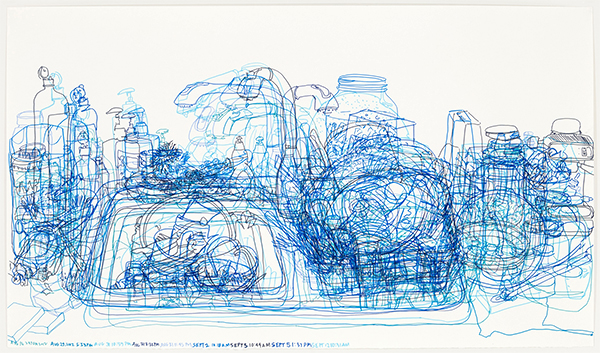
© Joan Linder
For many of us, the kitchen plays a part in our earliest memories—memories that are multi-sensual, bringing taste and smell together with our visual recollections of the spaces in which our families gathered. We often recreate our childhood memories of the kitchen as adults, cooking from recipes our parents used, buying the same foods that lined our childhood shelves, or serving meals on dishes inherited from grandparents. The BIG IDEA project At the Table: Kitchen as Home considers the central role of the kitchen in shaping our memories, our families and our social lives. Kitchens are spaces of ritual—places for the preparation of food as well as its sharing. We come together in kitchens to cook and to eat, to share in conversation, to do homework, to plant small gardens or make art, to entertain friends and family. Kitchens can be places for culinary creativity and experimentation, but they also offer the security of repetition—the pot of coffee prepared the same way every morning or the meal thrown together by rote. A kitchen’s contents reflect its occupants’ tastes and habits: a peek into someone’s refrigerator, pantry or utensil drawer offers insights into how they live and how they nourish themselves. At their best, kitchens are places of comfort. They offer the opportunity to connect to our past through the making and sharing of food with those we care for in the present.
The BIG IDEA project At the Table: Kitchen as Home is generously supported by Ali Long.
Unraveling: Reimagining Colonization in the Americas
March 8–May 22, 2019
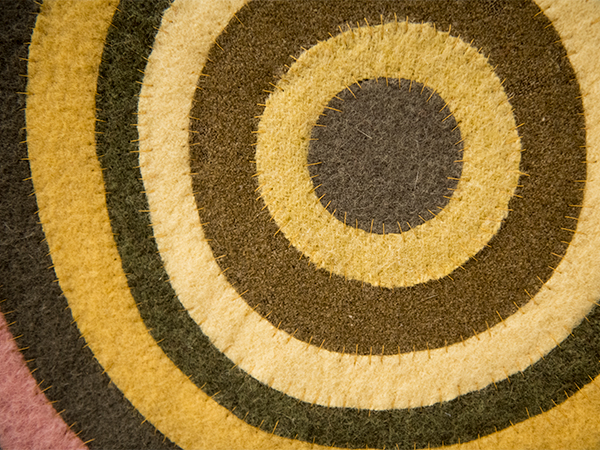
© Marie Watt
In American textbooks, the colonial history of the Americas is often presented as a straightforward story of European conquest of indigenous cultures. It is a story of settlement and expansion by the Spanish, Portuguese, English, Dutch and French as these European powers competed for possession of American territory—lands already occupied for millennia by native peoples. The real story, however, is anything but straight-forward. This history is fraught with conflict and negotiation, wars and treaties, sales and transfers of enormous swaths of land, usually without input from the original occupants. Even today the theme of Manifest Destiny runs through this version of history, obscuring the stories of those who were dispossessed by the colonial process.
What does this history omit? What are the possibilities for reimagining or reinterpreting colonial history from the indigenous point of view?
This BIG IDEA project offers an opportunity for retelling the colonial history of the Americas, offering up alternative perspectives and stories based on both fact and fiction.
Marketplaces: From Open Air to Online
Aug 30–Nov 8, 2019
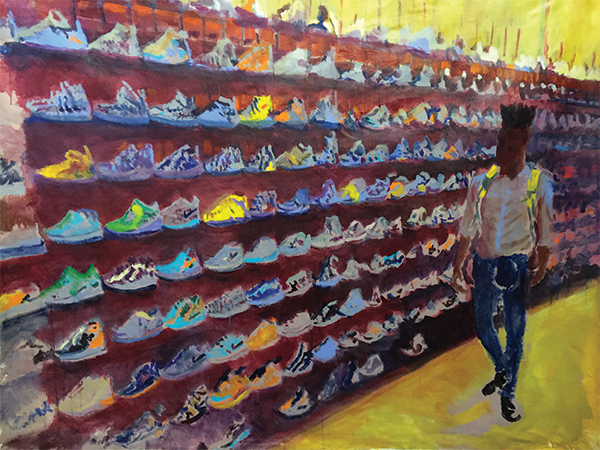
© Brendan O’Connell
Over the last 25 years, there has been a radical transformation in the way Americans buy and sell goods and services. Motivated by the perception of convenience, we are increasingly choosing to shop online from the comfort of our own homes or in big-box stores where we believe “one-stop shopping” will save us time and money. As a result, small, independently owned stores are facing serious challenges, leaving vacant storefronts along our Main Streets. These recent shifts are part of our evolving relationship with the marketplace—a space that has taken myriad forms over human history, from open-air markets and ancient trade routes to small shops owned by specialty retailers and online businesses that sell everything imaginable. While big-box stores and online shopping may be popular, there has also been a simultaneous resurgence in farmers markets and calls to shop locally and reinvest in our downtowns. This BIG IDEA projects sheds light on the complex intersections of today’s marketplaces and how our choices as consumers shape the society and communities we live in.
The Bottomlessness of a Pond: Transcendentalism, Nature and Spirit
Jan 17–Mar 11, 2020
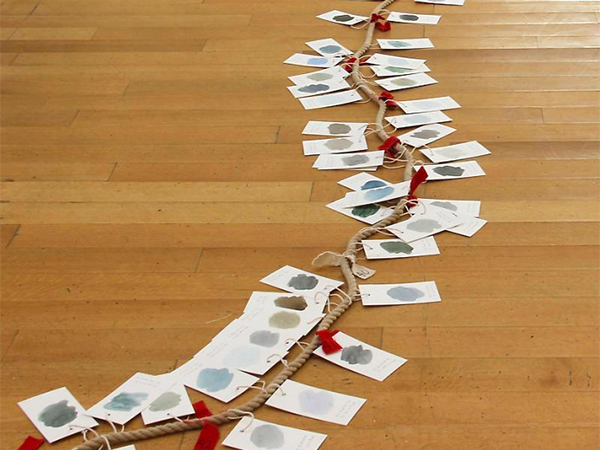
© Spencer Finch
The mid-19th century in the United States saw the emergence of a group of progressive thinkers who advocated for a new understanding of the relationship between the individual, the divine and the natural world. Ralph Waldo Emerson, Henry David Thoreau and Margaret Fuller, among others, came together in a shared belief in humanitarian causes and religious purpose. Transcendentalism, as their theological and philosophical ideas became known, embraced elements of Unitarianism and advocated for a personal knowledge of God based in a rejection of materialism in favor of a spiritual experience of nature. In the U.S., Transcendentalism’s ideals found their most famous embodiment in Thoreau’s retreat to Walden Pond (then believed to be bottomless), where he spent a year living in a small, spare cabin, focusing on the spiritual rewards of a life lived in harmony with nature. This BIG IDEA project offers the notion that Transcendentalism’s retreat from the material in favor of a spiritual or divine encounter with the natural is an idea that continues to be relevant—and one that is perhaps more useful now than ever before.
Free Play
Mar 20–May 22, 2020
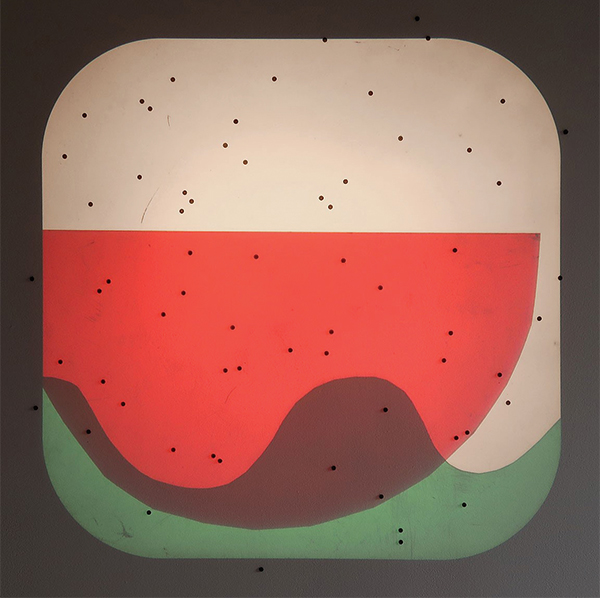
© Tucker Nichols
Free Play considers the relationship between design and creativity in social spaces dedicated to recreation and play. Inspired in part by artist Isamu Noguchi, who believed in the power of social spaces to unite art and play in order to build community, the project will examine the way that artists, architects and designers have worked to create artistically thoughtful spaces for social interaction and engagement. The project will also look at play more broadly, offering interactive opportunities that encourage individual and group play. We hope to unleash some creativity, investigating and remembering that the unstructured, unplugged nature of play nurtures experimentation and heightens our senses.
Generously supported by Jeanne Meyer.



